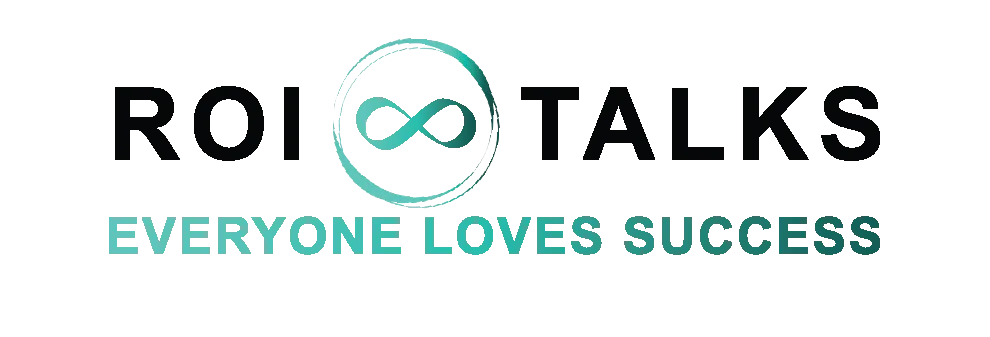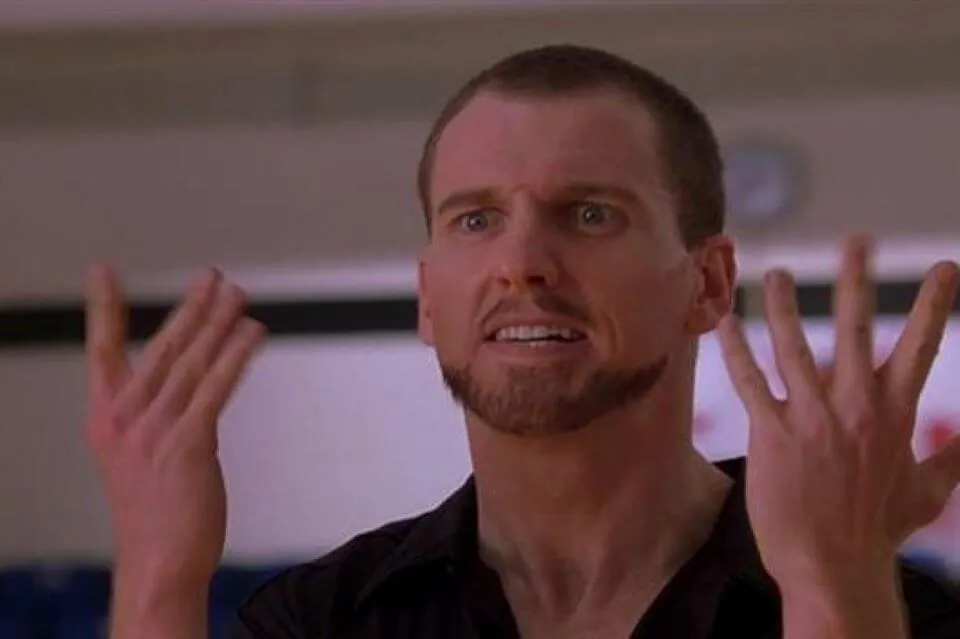
Everyone Loves Success
ROI TALKS
Roi Talks Blog

Beware Of The SPIRIT FINGERS Coach
"These aren't spirit fingers... THESE are spirit fingers!!" is the infamous dialogue from Sparky the coach who conned and scammed the cheerleaders in the popular movie "Bring It On".
Coaching is a respectable profession in any field. Yet there are coaches out there who take undue advantage of their client's situations. Truth be said I have been fooled by such scrupulous and bad coaches and know other people who have gone through the same. Trust is broken.
You see trust is extremely powerful. A simple definition of trust is the belief “that someone or something is reliable, good, honest, effective, etc.” Another definition that I read says “firm belief in the integrity, ability, or character of a person or thing; confidence or reliance.”
Stanford Encyclopedia of Philosophy states “Trusting requires that we can, 1) be vulnerable to others (vulnerable to betrayal in particular); 2) think well of others, at least in certain domains; and 3) be optimistic that they are, or at least will be, competent in certain respects.”
Such coaches have refined their outer appearance of executive presence. They are able to use their style to convince and influence a prospect into using their services. When the client realises through the engagement that something is not quite right they question the coach. In the initial stages, the bad coach assures them it is part of the process.
Time goes by and the client knows no progress is being made, they again question the coach. At this point, the fake executive presence coach refers to the contract and that as a coach he or she goes beyond the agreed contract and should charge the client more.
Trust is important and extremely powerful in a coaching relationship. Yet when a coach with only outer executive presence engages with you, the same trust will now be dangerous. The dangerous part of trust with a bad coach is that you have taken the risk to believe the coach is there for you to pull through for you.
Code of ethics means nothing to these bad coaches. Everyone knows when he or she is being unethical. So, no matter what piece of paper you show them with a set code of ethics it has no meaning to these bad coaches. Many years ago someone said to me “coaching is not about the coach; it is always about the client. That is the only ethic to remember.” Unfortunately, many coaches focus on the transaction rather than helping the client.
At a friend's children's party, I got into a conversation with a girl about 14 years of age. Her dream is to be a coach. I asked her what makes her want to be a coach. She said that because it is an easy profession, you pretend you listen to other people, give them fake advice that sounds intelligent and you get paid a lot. That was a perfect description of a bad coach that I call "the spirit finger coach".
These scrupulous coaches are obviously talented. They are miss using their credibility, experience and charm to fool clients into giving their money. This goes against the coaching ethics and that trust was never part of their agenda. A coach is there to teach and guide people. He or she is there to help people grow as individuals so that they become better people in the world, be it wealth, health or relationship.
Recognising a bad coach can be tough as some are very pleasant in their words and behaviour. You will only know that you are dealing with a bad coach once you engage with them. Unfortunately, you may face such bad coaches who have all the right marketing to backup them up. Yes, a bad coach is expensive and painful learning. Yet, it is learning that amplifies your awareness in looking out for that authentic coach.
Recognising The Four Core Elements of A Powerful Authentic Coach
On the whole, we don’t like or trust people who come across as phoney and false. We avoid such people and seek friends and colleagues who are authentic. Authenticity is important, but what exactly do we mean by the term? Often we judge a person's authenticity by the passion and commitment they have for what they say and do. For sure, part of being authentic is standing up for what you believe in and speaking the truth, as it seems to you, even if it is not what others want to hear. However, the question is, authentic to what?
People can be committed to and passionate about lots of things, but this by itself is not enough. Authenticity is more than when someone believes in what they say or acts in a way that is consistent with their beliefs. An inauthentic person is equally able to stand up and say what they truly believe. We ought not to judge authenticity purely by the passion a person has for what they say.
The more important part of the authenticity question is to look at the character of the person. What’s behind what they say? Humanistic psychologists would say that by definition, authentic people possess a number of common characteristics that show they are psychologically mature and fully functioning as human beings. Authenticity means to be true to oneself and an authentic person will display these seven qualities:
Have realistic perceptions of reality.
Are accepting of themselves and of other people.
Are thoughtful.
Have a non-hostile sense of humour.
Are able to express their emotions freely and clearly.
Are open to learning from their mistakes.
Understand their motivations.
If behind what a person says and does is a defensive and self-deceptive approach to life, then no matter how passionate and committed they are to a cause, ultimately they are not being true to themselves. Authenticity is ultimately about those qualities that show healthy non-defensive functioning and psychological maturity. The above was extracted from https://www.psychologytoday.com/
Now let us look at recognising the four core elements of a powerful authentic coach
Building And Developing Rapport - Authentic coaching requires a solid relationship between the coach and the coachee. The key to achieving this is to build an ongoing wholesome rapport. Rapport refers to how you relate to someone and your connection with them - in both quick, isolated conversations, and also over the longer term.
Deep Listening - Authentic coach is one who is focused on what the coachee is saying. To do this, they need to listen with compassion. Strong listening skills allow an authentic coach to gain understanding and insights regarding the coachee’s needs, making them feel and ensuring the conversation is about the coachee.
Asking Wise Questions - Authentic coaching is asking questions in order to guide a coachee to reach their own understanding or provoke a constructive action. It is getting the coachee to focus on being wholesome in their ways. They ask questions that are clear, focused on helping the coachee with their agenda, and are open rather than directive.
Providing Feedforward - Authentic coach offers constructive feedback. Feedback involves giving coachees information that helps them to determine improvement areas or build upon strengths. In fact, an authentic coach uses the invaluable tool of feedforward for raising and maintaining performance. Rather than providing positive or negative feedback, feedforward consists in tapping into the coachee's inner wisdom with practical oriented options or solutions.
Authentic coaching is not a script, curriculum or program. It requires you to be courageous. You unlock your potential to maximise your performance with the holistic approach of an authentic coach.
ROI TALKS™
Marina Plaza - Office 1004 -1006
Dubai Marina, Dubai, UAE




